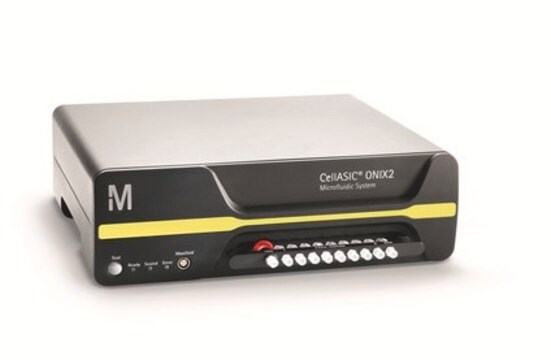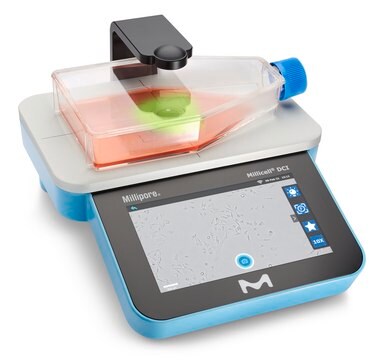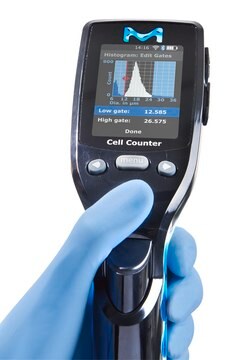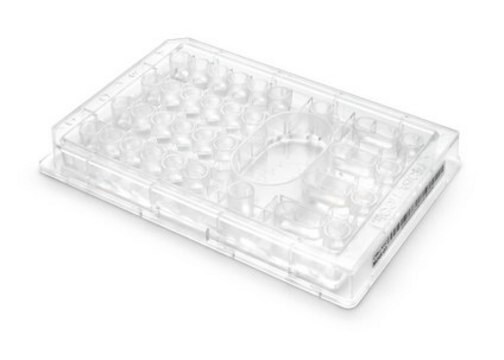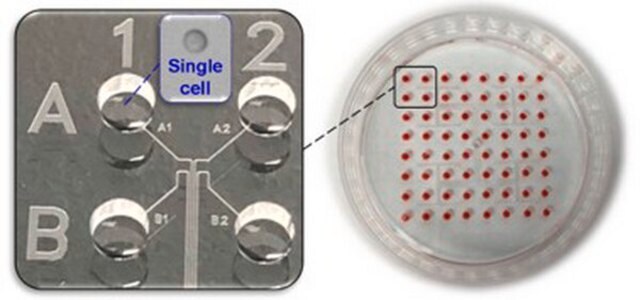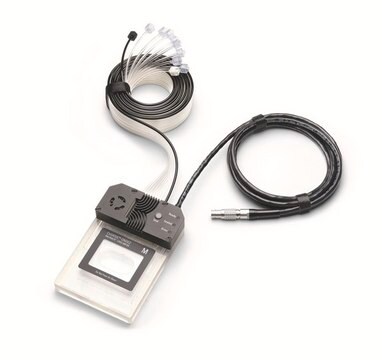Y04C-02-5PK
CellASIC ONIX plate for haploid yeast cells (4 chamber, 3.5-5 micron)
The Y04 plates for Haploid Yeast Cells utilize a microfabricated silicone ceiling with a height similar to yeast cells to restrict their growth in a single focal plane & maintaining x,y position over time.
Synonym(s):
Haploid Yeast Cell Plate, Haploid Yeast Plate, ONIX Yeast Plate
About This Item
Recommended Products
material
PMMA
glass
polycarbonate
polydimethylsiloxane (PDMS)
manufacturer/tradename
CellASIC® ONIX
W × L × H
85.48 mm × 127.76 mm × 14.35 mm
compatibility
for use with cells sized 3.5–5.0 μm
shipped in
ambient
General description
Application
- Time-lapse analysis of yeast cells
- Long-term continuous perfusion experiments
- Solution exchange experiments (induction, inhibition, drug dosing, etc.)
- Comparison of up to 4 different cell types or exposure conditions(media components) in parallel
- Cell division tracking (follow mother/daughter cells over generations)
- Temperature and gas atmospheric control (temperature shift, anoxic conditions etc.)
Features and Benefits
- Compatible with CellASIC® ONIX2 Microfluidic system and ONIX2 Manifolds
- Enables perfusion-based, long-term, live-cell analysis with solutionswitching
- The plate offers a controlled and dynamicmicroenvironment for cells
Legal Information
Storage Class Code
12 - Non Combustible Liquids
WGK
nwg
Flash Point(F)
Not applicable
Flash Point(C)
Not applicable
Certificates of Analysis (COA)
Search for Certificates of Analysis (COA) by entering the products Lot/Batch Number. Lot and Batch Numbers can be found on a product’s label following the words ‘Lot’ or ‘Batch’.
Already Own This Product?
Find documentation for the products that you have recently purchased in the Document Library.
Articles
This page shows the long-term culture and in-plate staining protocols using the CellASIC ONIX Microfluidic platform.
Related Content
This article describes CellASIC® ONIX live cell analysis platform for neural stem cell microenvironment control
Convert your microscope to a live cell imaging system – the CellASIC® ONIX2 system allows precise manipulation of the cell culture environment for dynamic live cell imaging and analysis using mammalian, yeast, and bacterial cells.
Our team of scientists has experience in all areas of research including Life Science, Material Science, Chemical Synthesis, Chromatography, Analytical and many others.
Contact Technical Service